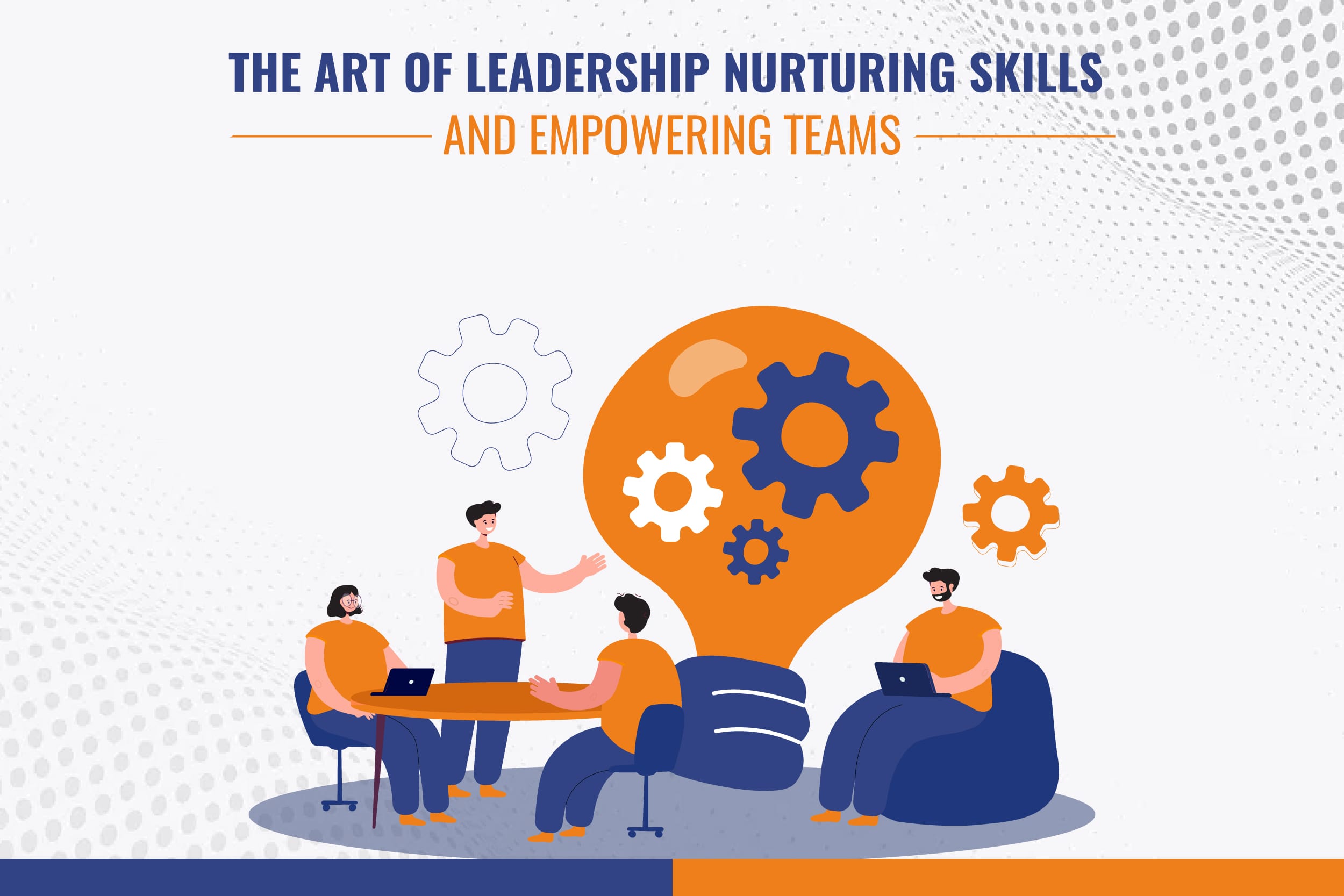
The Art of Leadership Nurturing Skills and Empowering Teams
Leadership is an art form—a delicate balance between guiding individuals and empowering teams to achieve common goals. In today's dynamic corporate landscape, the role of a leader goes beyond merely managing tasks; it entails fostering growth, cultivating talent, and inspiring innovation.
However, effective leadership is not innate; it requires continuous learning, development, and honing of skills. This article delves into the essence of leadership, explores the significance of leadership training for employees, and elucidates how they contribute to the empowerment of teams within the corporate realm.
Understanding Leadership
At its core, leadership is about influence and inspiration. A leader is someone who guides others towards a shared vision, motivates them to excel, and fosters an environment conducive to collaboration and growth. While some individuals may possess natural leadership traits, leadership is a skill that can be cultivated and refined through experience and education.
Key Attributes of Effective Leadership
Effective leadership encompasses a myriad of attributes.
Visionary Thinking
Leaders have a clear vision of the future and articulate it in a compelling manner, inspiring others to rally behind common objectives.
Communication Skills
Communication lies at the heart of effective leadership. Leaders must convey ideas, provide feedback, and listen empathetically to their team members.
Emotional Intelligence
Leaders with high emotional intelligence understand their own emotions and those of others, enabling them to navigate complex interpersonal dynamics with empathy and tact.
Adaptability
In today's rapidly evolving business landscape, adaptability is crucial for leaders to navigate change, embrace innovation, and steer their teams towards success.
Integrity
Trust is the cornerstone of effective leadership. Leaders must demonstrate integrity, honesty, and ethical conduct to earn the trust and respect of their team members.
The Role of Leadership Training Courses
Leadership training courses play a pivotal role in equipping individuals with the knowledge, skills, and tools necessary to excel in leadership roles. These courses are designed to provide aspiring leaders and seasoned professionals alike with insights into effective leadership practices, strategies for team management, and techniques for personal development. Moreover, leadership courses cater to diverse learning styles, offering a blend of theoretical knowledge, practical exercises, case studies, and interactive workshops.
Benefits of Leadership Training for Employees
Skill Enhancement
Leadership training program for employees provide participants with opportunities to enhance their leadership skills, such as communication, decision-making, conflict resolution, and strategic thinking.
Confidence Building
By acquiring new knowledge and mastering leadership techniques, employees gain confidence in their abilities to lead and inspire others, thereby boosting morale and self-esteem.
Career Advancement
Leadership training courses serve as a springboard for career advancement, empowering employees to take on leadership roles and assume greater responsibilities within their organizations.
Team Collaboration
Effective leadership fosters a culture of collaboration and teamwork, enabling employees to work cohesively towards common goals and objectives.
Employee Engagement
Investing in corporate leadership training demonstrates a commitment to employee development and fosters a sense of loyalty and engagement among team members.
Corporate Leadership Training
Corporate leadership training programs should be tailored to the specific needs and objectives of the organization.
Needs Assessment
Conduct a thorough assessment of the organization's leadership needs and challenges to identify areas for improvement and tailor training programs accordingly.
Leadership Development Plans
Develop individualized leadership development plans for employees, outlining their goals, areas for growth, and action steps for skill enhancement.
Mentorship and Coaching
Pair employees with experienced mentors or coaches who can provide guidance, feedback, and support as they navigate their leadership journey.
Experiential Learning
Incorporate experiential learning opportunities, such as simulations, role-playing exercises, and real-world projects, to reinforce leadership concepts and skills.
Continuous Evaluation and Feedback
Implement mechanisms for ongoing evaluation and feedback to assess the effectiveness of leadership training programs and make necessary adjustments.
Empowering Teams through Effective Leadership
Ultimately, the true measure of leadership lies in its ability to empower teams to achieve extraordinary results. Effective leaders create an environment where individuals feel valued, motivated, and empowered to contribute their best efforts towards organizational success. By nurturing leadership skills and fostering a culture of collaboration, organizations can unlock the full potential of their teams and drive innovation, productivity, and growth.
Final Thoughts
The art of leadership is a multifaceted journey of growth, learning, and transformation. Through effective leadership training for employees and initiatives, individuals can hone their skills, unlock their potential, and become catalysts for positive change within their organizations. By nurturing a new generation of leaders and empowering teams to excel, organizations can thrive in today's competitive business landscape and chart a course towards a brighter future.
